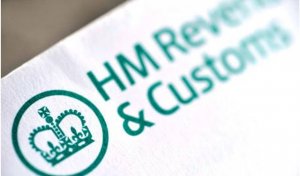- Private Wealth
- Tax & Estate Planning
- Trusts

Shorter Reads
Why the IHT nil rate band may be scant comfort for homeowners in the South East
1 minute read
Published 25 October 2018
Key information
- Services
- Private Wealth
- Tax & Estate Planning
- Trusts
The inheritance tax nil rate band has been frozen at £325,000 since April 2009 and the Government appears to have no plans to increase this threshold in the near future. When the increase in house prices in London and the South East is compared over this time period it is small wonder that so many estates are now subject to inheritance tax.
The Government did introduce the new residence nil rate band in April 2017, which provides parents with an additional slice of inheritance tax relief if they leave all or part of a residential property to their children or further descendants. This was designed so that parents could leave up to £1,000,000 between them to their children tax free.
However, this additional slice begins to taper off once an individual’s net wealth exceeds £2,000,000, meaning that parents whose combined net worth exceeds £4,000,000 will lose the right to claim some or all of the relief. For many families in London and the South East the family home represents a significant proportion of this figure, which does not leave much room before the residence nil rate band is lost. The relief also only applies if assets are left directly on death, meaning that individuals with certain Wills (for example where assets are left on a discretionary trust and not appointed out within two years) will miss out on the residence nil rate band completely.
It will be interesting to see how the figures for 2017/18 compare to the figures in this article in due course once the residence nil rate band is taken into account.
Shorter Reads
Why the IHT nil rate band may be scant comfort for homeowners in the South East
Published 25 October 2018
Associated sectors / services
Authors
The inheritance tax nil rate band has been frozen at £325,000 since April 2009 and the Government appears to have no plans to increase this threshold in the near future. When the increase in house prices in London and the South East is compared over this time period it is small wonder that so many estates are now subject to inheritance tax.
The Government did introduce the new residence nil rate band in April 2017, which provides parents with an additional slice of inheritance tax relief if they leave all or part of a residential property to their children or further descendants. This was designed so that parents could leave up to £1,000,000 between them to their children tax free.
However, this additional slice begins to taper off once an individual’s net wealth exceeds £2,000,000, meaning that parents whose combined net worth exceeds £4,000,000 will lose the right to claim some or all of the relief. For many families in London and the South East the family home represents a significant proportion of this figure, which does not leave much room before the residence nil rate band is lost. The relief also only applies if assets are left directly on death, meaning that individuals with certain Wills (for example where assets are left on a discretionary trust and not appointed out within two years) will miss out on the residence nil rate band completely.
It will be interesting to see how the figures for 2017/18 compare to the figures in this article in due course once the residence nil rate band is taken into account.
Associated sectors / services
- Private Wealth
- Tax & Estate Planning
- Trusts
Authors
Need some more information? Make an enquiry below.
Subscribe
Please add your details and your areas of interest below
Article contributor
Aidan
GrantSenior Associate
Specialising in International trusts, tax & estate planning, Private wealth, UK trusts, tax & estate planning and US/UK Tax & estate planning
Enjoy reading our articles? why not subscribe to notifications so you’ll never miss one?
Subscribe to our articlesMessage us on WhatsApp (calling not available)
Please note that Collyer Bristow provides this service during office hours for general information and enquiries only and that no legal or other professional advice will be provided over the WhatsApp platform. Please also note that if you choose to use this platform your personal data is likely to be processed outside the UK and EEA, including in the US. Appropriate legal or other professional opinion should be taken before taking or omitting to take any action in respect of any specific problem. Collyer Bristow LLP accepts no liability for any loss or damage which may arise from reliance on information provided. All information will be deleted immediately upon completion of a conversation.
Close






























































































